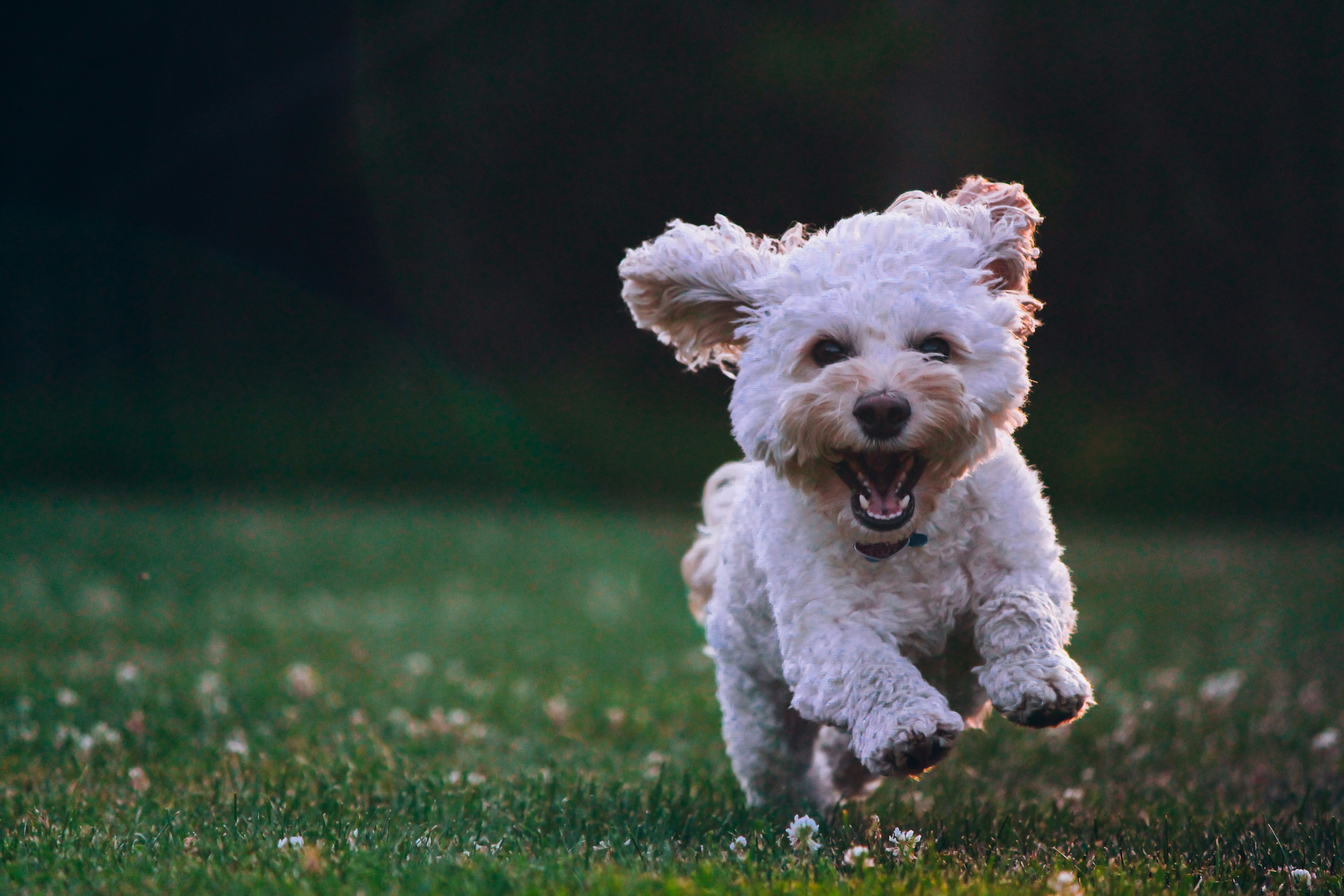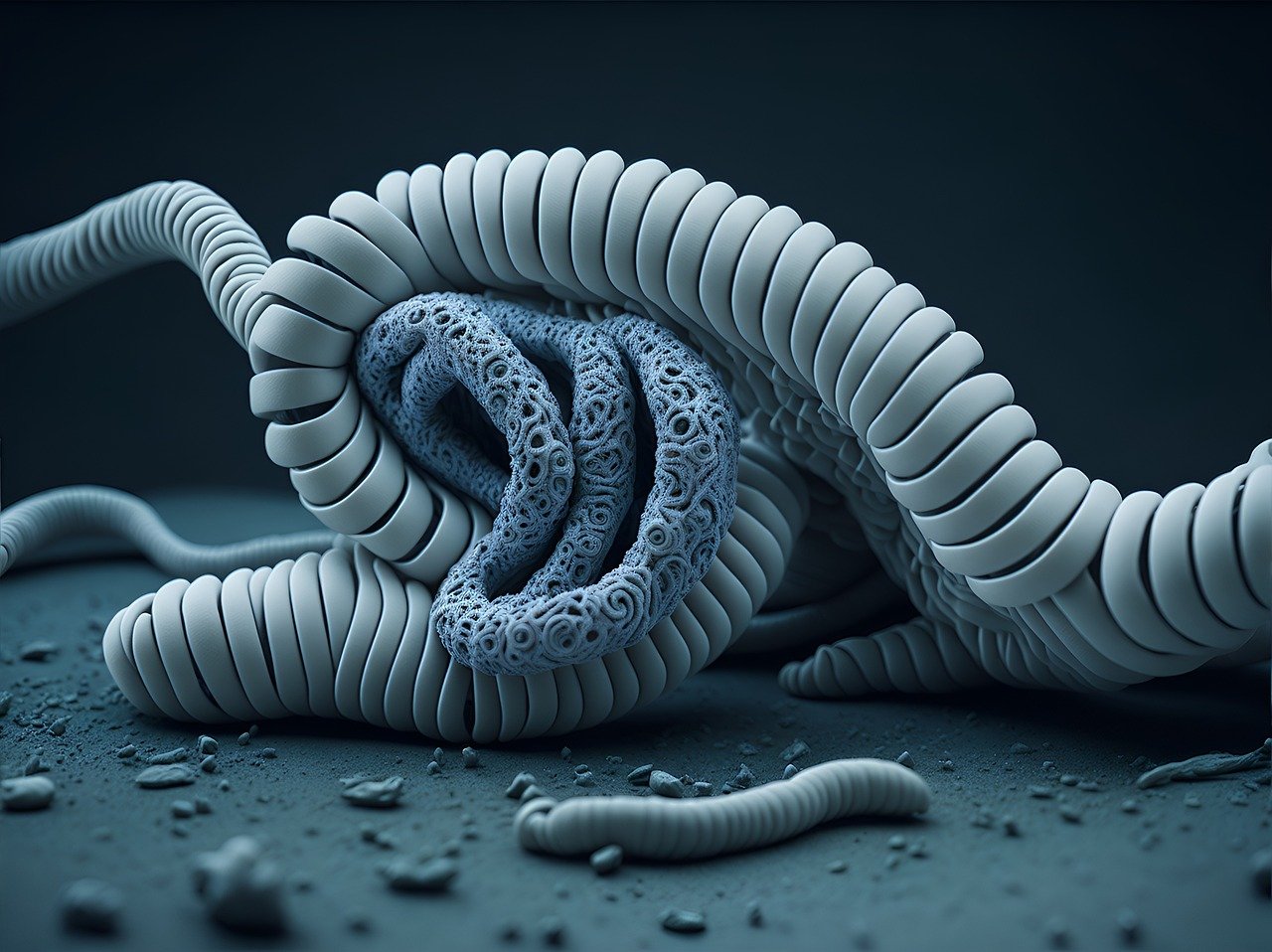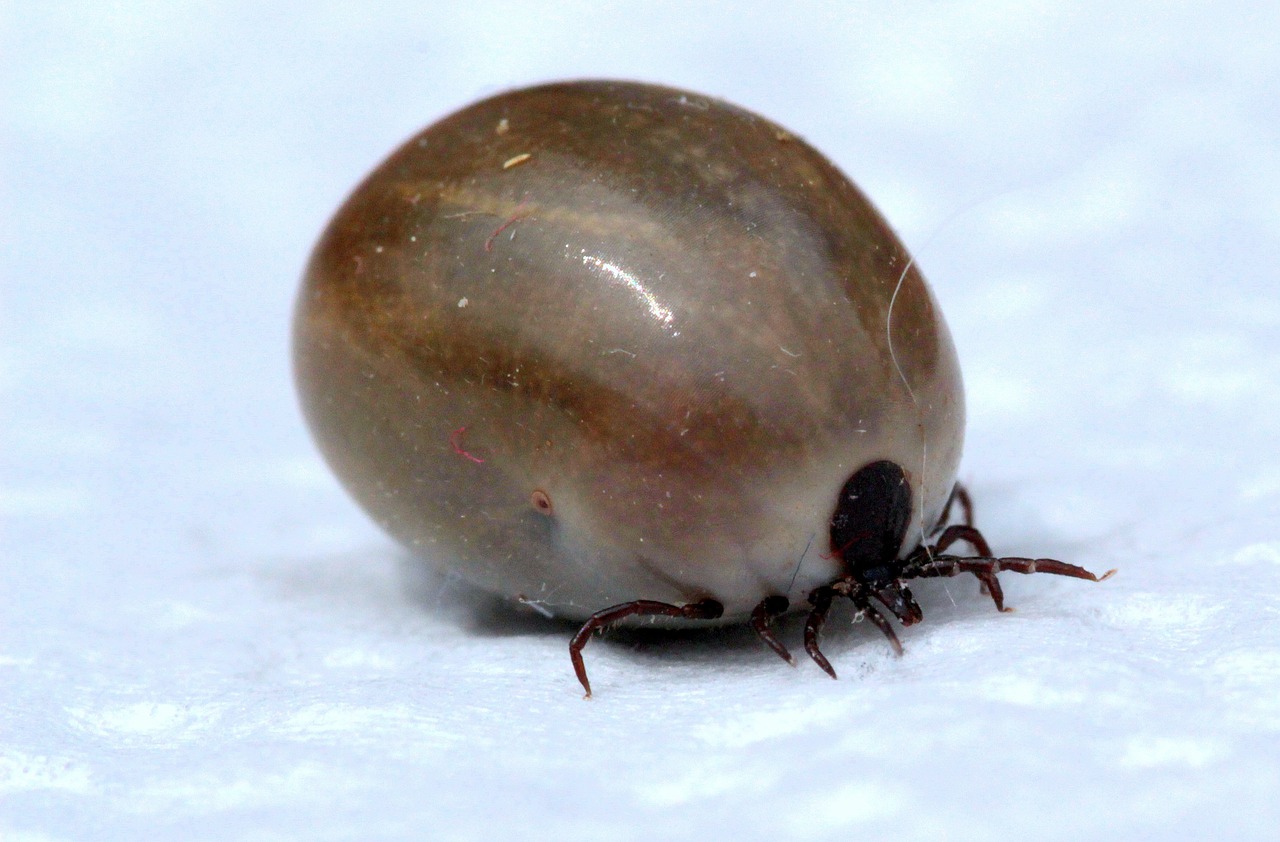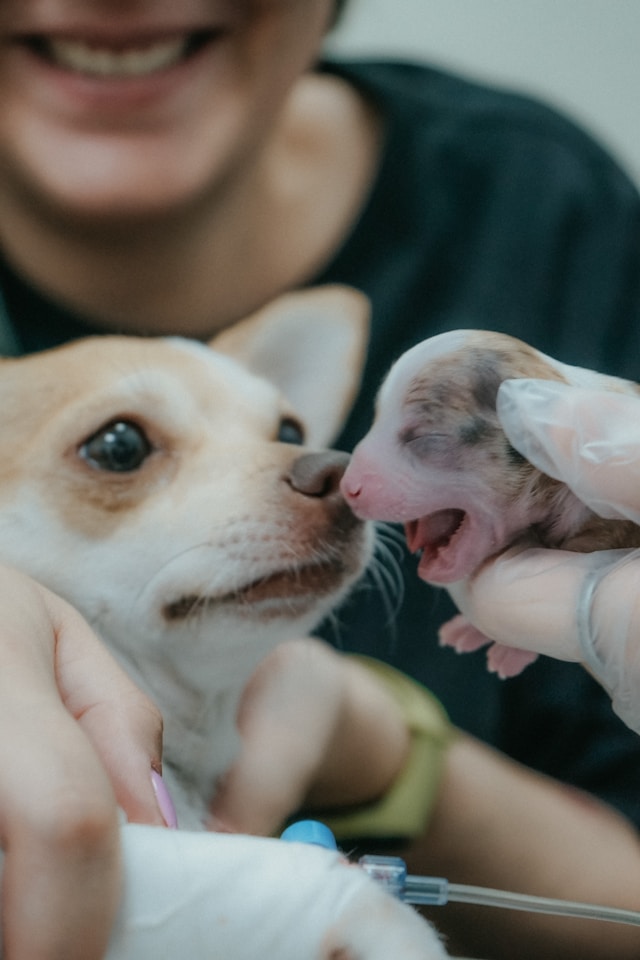Biewer Terrier
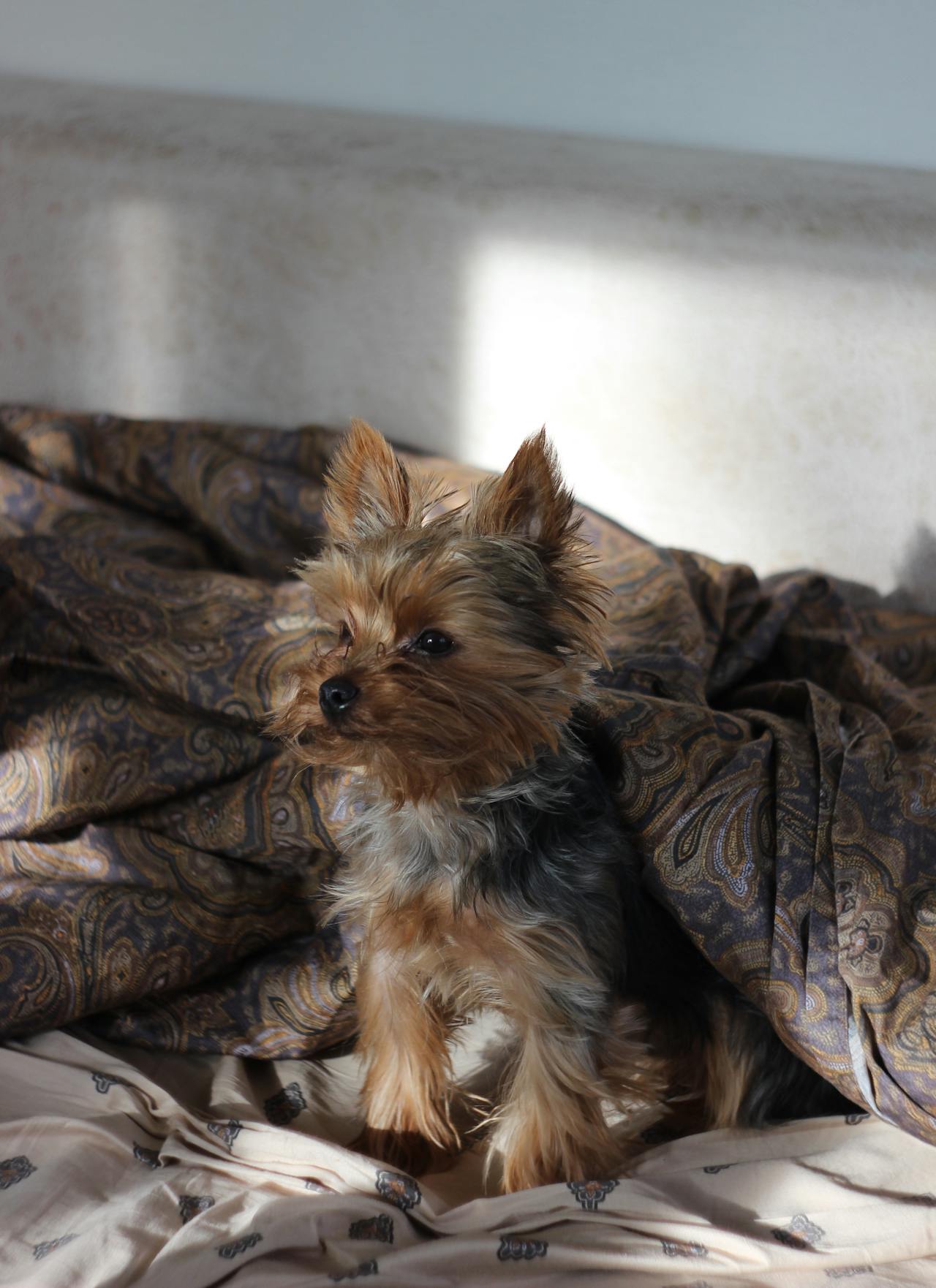
| Official Name | Biewer Terrier |
| Common Name | Biewer Terrier |
| Pet Height | 7 to 11 inches |
| Pet Weight | 4 to 8 pounds |
| Lifespan | 16 to 16 years |
| Good With | cats, children, dogs, families, seniors |
| Temperament | friendly, outgoing, willful |
| Intelligence | high |
| Shedding Amount | infrequent |
| Exercise Needs | medium |
| Energy Level | calm |
| Vocal Level | when necessary |
| Drool Amount | low |
| Breed Group | toy |
| Breed Size | small (0-25 lbs.) |
| Coat Length | long, short |
| Colors | black, blue, gold/yellow, white |
| Patterns | tricolor |
| Other Traits | apartment-friendly, easy to train, good hiking companion, hypoallergenic, requires lots of grooming |
They're perfect for first-time dog owners, though you'll need patience when searching for one to bring home.
Let's start with the basics. The Biewer Terrier, a relatively new breed recognized by the American Kennel Club (AKC) in early 2021, is pronounced like the word "beaver" (yes, just like the animal). But don't worry—these lovable pups won't be gnawing on your trees!
Biewer Terriers are directly descended from Yorkshire Terriers and were first bred in Germany in the mid-1980s. Genetic testing has confirmed that Biewers aren't just a variation of Yorkies—they're a distinct breed known for their happy and playful nature.
"They get along with everyone, and I find them to be the most loving little dogs," says Myrna Torres, co-founder and president of the Biewer Terrier Club of America (BTCA).
There's a lot to love about Biewers. According to Gayle Pruett, another club co-founder, these little dogs are so entertaining that you can skip the TV—just watching them will be enough.
They're usually well-behaved, don't shed much, and make great travel companions. A Biewer Terrier might be the perfect choice if you're a first-time dog owner.
However, there is a catch. While these dogs are intelligent, healthy, and full of personality, they're still a young breed and already in high demand. Finding one might take some time, and the cost can run into the thousands. Plus, you'll need to be careful to avoid puppy mills and unethical breeders who might try to sell you an unhealthy dog.
"Take your time. Do your homework. Be patient, and you'll find the right dog," advises Torres.
Appearance
Biewer terriers are tiny dogs, part of the toy group, typically weighing between 4 and 8 pounds and standing around 7 to 11 inches tall. Their coats come in a mix of white, black, blue, tan, and gold, giving them a distinctive tri-color appearance.
At first glance, they might remind you of Yorkies or parti Yorkies, which often have gold heads and mostly white fur with little black. But if you're unsure whether you're looking at a Yorkie or a Biewer terrier, check the tail. A Biewer terrier's tail is full and plumes over the back, unlike a Yorkshire terrier's, which is different.
Another way to tell them apart is by their build. Biewer terriers tend to have a bit more muscle and sturdier bones than Yorkies. Their fur is also thicker and less sparse.
Biewer terriers usually have two types of coats: a long, elegant show coat or a shorter, scruffy puppy cut. The longer coat needs more care, including regular brushing and washing. While these dogs don't shed and are often considered hypoallergenic, it's important to note that no dog is truly hypoallergenic.
Personality
The Biewer Terrier is an excellent choice for both new and experienced dog owners because they are incredibly friendly and get along with just about everyone—adults, seniors, kids, and even cats. Whether you're a young child or an older adult, your Biewer will likely shower you with affection. However, it's worth noting that while they generally do well with young children, it's important to be cautious with bigger, older kids who might play too roughly with these small dogs.
"I personally have never met an unfriendly Biewer Terrier," says Torres.
These playful dogs love to stay busy at home, whether it's with a toy, a stick, or even a leaf. They're known to show off, proudly carrying around their favorite toy or a stick they found outside. And when they get the zoomies, watch out! Your Biewer might race around the house like a little Tasmanian Devil, so be careful where you step.
Despite their energetic nature, Biewers are also perfect lap dogs. They're highly in tune with their owner's feelings, and if they sense you're not feeling well, they'll jump into your lap or onto your chest, offering comfort and snuggles to cheer you up.
When it comes to training, Pruett starts working with her Biewer Terrier puppies as early as 4–6 weeks old. She finds that these smart pups pick up commands like sit, lay down, and stay in no time. Using positive reinforcement, they learn quickly.
"You start with them early, and after telling them just three times, they've got it," Pruett says. "They're extremely smart and learn very quickly."
Living Needs
Your Biewer Terrier will be perfectly content living in either an apartment or a house with a fenced yard. According to experts Torres and Pruett, while they enjoy a quick run around the backyard, a couple of daily walks outside your apartment will also keep them happy. If you happen to skip a day, don't worry too much—your terrier will still get plenty of exercise playing indoors and following you around.
They'll also love splashing in a kiddie pool or going on a short hike. You can even train them for fun activities like dock diving or agility competitions. Biewers can handle warm weather, though they don't particularly enjoy it, so make sure they have a cool spot to relax during summer. On the other hand, some Biewers absolutely love playing in the snow, gathering tiny snowballs in their fur as they frolic. Just be sure it's not too cold, as extreme temperatures could lead to frostbite or hypothermia.
While these dogs are active and love to play, they'll happily curl up on your lap or settle into their bed once they've burned off some energy. However, they aren't the type to lounge around all day, so it's important to be around them most of the time or have another pet to keep them company. If left alone for too long, your terrier might start to misbehave.
As Pruett emphasizes, "These dogs cannot be alone. They need another dog for companionship."
To help your Biewer Terrier develop a friendly and easygoing temperament, make sure to socialize them from a young age once they've had their vaccinations. This will help them get along well with both other dogs and people, enhancing their naturally friendly personality.
Care
Caring for your Biewer Terrier's coat will vary depending on its length. If you choose to keep her fur long, reaching down to the floor like a show dog, you'll need to brush her daily and give her a bath twice a month. If you opt for a shorter puppy cut, brushing every few days and a monthly bath should be enough.
However, be careful not to bathe your dog too frequently, as this can dry out her skin and lead to dandruff, warns expert Pruett. For other grooming needs, trim her nails when you start to hear them tapping on hard surfaces. And don't forget to brush her teeth regularly.
Additionally, Biewer Terriers have specific dietary needs you'll want to pay attention to, which we'll cover next.
Health
Biewer Terriers are generally healthy dogs but have sensitive stomachs, so you need to be careful about what you feed them. According to Pruett, a Biewer Terrier Club of America's (BTCA) health committee member, it's best to give them a low-protein diet, aiming for about 15% protein and 15-30% fat in their food. It's important to avoid feeding them high-fat table scraps like ham or French fries, as too much of these can cause pancreatitis.
These little dogs can also have an issue common to many small breeds: stubborn baby teeth. Sometimes, their puppy teeth don't fall out when their adult teeth come in, which may require a visit to the vet for removal.
Overall, Biewer Terriers are pretty healthy, with a typical lifespan of around 16 years. However, breeders should ensure their dogs are tested for conditions like progressive retinal atrophy and primary lens luxation and should also get regular eye exams from certified optometrists.
Exercise Requirements
The Biewer Terrier is a calm and laid-back dog, but they also have a playful side that keeps them active enough to stay healthy. They love going on little adventures, even just a quick trip to the mailbox or a stroll around the block. Keeping them busy with indoor games and training will help them stay happy and healthy as they grow.
While they don't necessarily need to leave the house to get their daily exercise, it's important to keep their minds stimulated with regular outdoor activities. Taking them outside should be a part of your routine. Plan for neighborhood walks and trips to the park a few times a month to keep them engaged and content.
Training
The Biewer Terrier is eager to please, which usually makes training them a straightforward process. While potty training might take a bit more time than you'd hope, other aspects of training should go smoothly.
It's wise to think about getting an obedience trainer while your Biewer Terrier is still a puppy. This helps establish proper handling and positive reinforcement techniques early on, especially if young children will be involved in the dog's training.
History
The Biewer Terrier has a unique origin story, beginning in 1984 when a Yorkie owned by Gertrud and Werner Biewer gave birth to a pair of puppies with a striking black, white, and tan coat—very different from the typical Yorkie fur. This unexpected variation led to the breed being initially named the German Yorkshire Terrier. The breed was first introduced to the public in Germany in 1986 and made its way to the United States in 2003. It wasn't until later that genetic testing confirmed these dogs had distinct genes, proving they were not just a variation of the Yorkie.
In a groundbreaking moment for dog breeding, the Biewer Terrier was officially recognized as a purebred through genetic analysis rather than traditional pedigree documentation. Despite being a relatively young breed—just 38 years old—Biewer Terriers are now able to compete in major dog shows thanks to their recognition by the American Kennel Club (AKC). The high demand for these charming dogs is evident, with people even traveling across the country to find one.
However, the soaring popularity has also attracted less scrupulous sellers. To avoid falling victim to scams or puppy mills, keep these tips in mind when looking for a Biewer Terrier:
Expect to pay between $2,000 and $3,000 for a Biewer Terrier puppy. If a price seems too good to be true, ask for an explanation.
Biewer litters are typically small, usually containing just three to four puppies. Be cautious if a seller claims to have 15 to 20 puppies available.
Avoid breeders who have PayPal or credit card payment options on their websites or those who allow installment payments.
Be wary of overly polished photos that seem too perfect.
Don't buy a "teacup" Biewer Terrier, as these are often runts with potential health issues.
For a reliable breeder, start by checking the Biewer Terrier Club of America's (BTCA) website. Pruett and Torres advocate for the breed and emphasize that while the Biewer Terrier is still new and in high demand, buying from stores or puppy mills only leads to problems. "Don't buy from a store," Pruett advises. "Those dogs come from puppy mills, and you're basically buying heartache."
Fun Facts
Remember those first Biewer Terrier puppies born in Germany? They caught the eye of Margot Eskens, a well-known German singer, who decided to buy them. She also added a special touch to their name, changing it to "Biewer Yorkshire Terrier a la Pom Pon."
In 2007, Pruett had the chance to meet Gertrud Biewer herself. According to the Biewer Terrier Club of America, Biewer was thrilled to learn that her breed was thriving in the U.S. and even approved the breed standard.
By 2021, the Biewer Terrier was officially recognized as the 197th breed by the American Kennel Club.
Get insurance plans with wide-ranging coverage options









